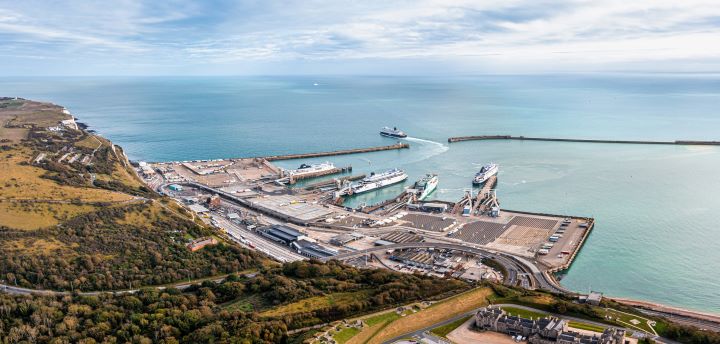Dover District Council has warned that it is at “risk” of issuing a section 114 notice in 2025/26 over the withdrawal of port health funding.
In his section 25 report, Mike Davis, Dover’s section 151 officer, stated that the authority’s budget for 2024/25 has been prepared on a “rigorous and robust basis”, with “sufficient” reserves for its immediate needs.
However, he warned that there are “two significant factors that can undermine the budget over the next year or two”, which include the Department for Environment Food and Rural Affairs’ (DEFRA’s) withdrawal of funding for port bio-security checks and the actions of Department for Levelling Up, Housing and Communities (DLUHC) over local audit and council finance.
Davis said that these factors could “severely deplete the council’s limited reserves and greatly increases the risk of the chief finance officer being required to make a report pursuant to section 114 of the Local Government Finance Act 1988 in 2025/26”.
Funding withdrawal
In Davis’ report, he explained that DEFRA is withdrawing 66% (£2m out of £3.2m) of Port Health Authority funding from Dover in 2024/25 and the remaining 33% (£1.2m) in 2025/26.
The report explained that the council proposes to maintain the current service at its own expense, with the cost being £2.8m in 2024/25 and £4m thereafter. This will deplete its usable reserves by £233,000 per month in the next financial year and £333,000 per month in 2025/26 unless corrective action is taken.
“If the DEFRA funding is not restored, or severe corrective action is not taken to reduce expenditure on services, the council’s position could become untenable and trigger a s114 report,” Davis warned.
Despite “vague” DEFRA assurances, the failure to properly resource the port health function poses a critical and irresponsible bio-security threat to the UK pork industry and UK food chain, with 90% of African Swine Fever (ASF) risk-related pork arriving in Dover, Davis explained.
Funding problems
In his section 25 report, Davis also suggested that the “system of local government finance and local audit has failed and is not sustainable”, with council funding allocated on a “single year basis, late in the year, using out of date information”.
Davis noted that DLUHC are refusing to base Dover’s 2024/25 settlement on the latest business rates data, which is costing the authority £300,000 per annum, putting further stress on its financial capacity.
“Across the sector, we are likely to continue to see downwards pressure on council resources and upwards pressure to spend, and use reserves, across local government to meet these demands. This is not a strategically sustainable position,” Davis wrote.
In response, a DEFRA spokesperson said: “In 2022 we provided a temporary financial support package to local authorities and port health authorities. Part of this package enabled port health authorities to support Border Force with enforcing the temporary measures on pork products from the European Union designed to address the risks from African Swine Fever.
“We recognise the strategic importance of the port of Dover and are continuing to work with the port authority on future support options.”
Room151 has also contacted both DLUHC for a response.
FREE weekly newsletters
Subscribe to Room151 Newsletters
Follow us on LinkedIn
Follow us here
Monthly Online Treasury Briefing
Sign up here with a .gov.uk email address
Room151 Webinars
Visit the Room151 channel
















